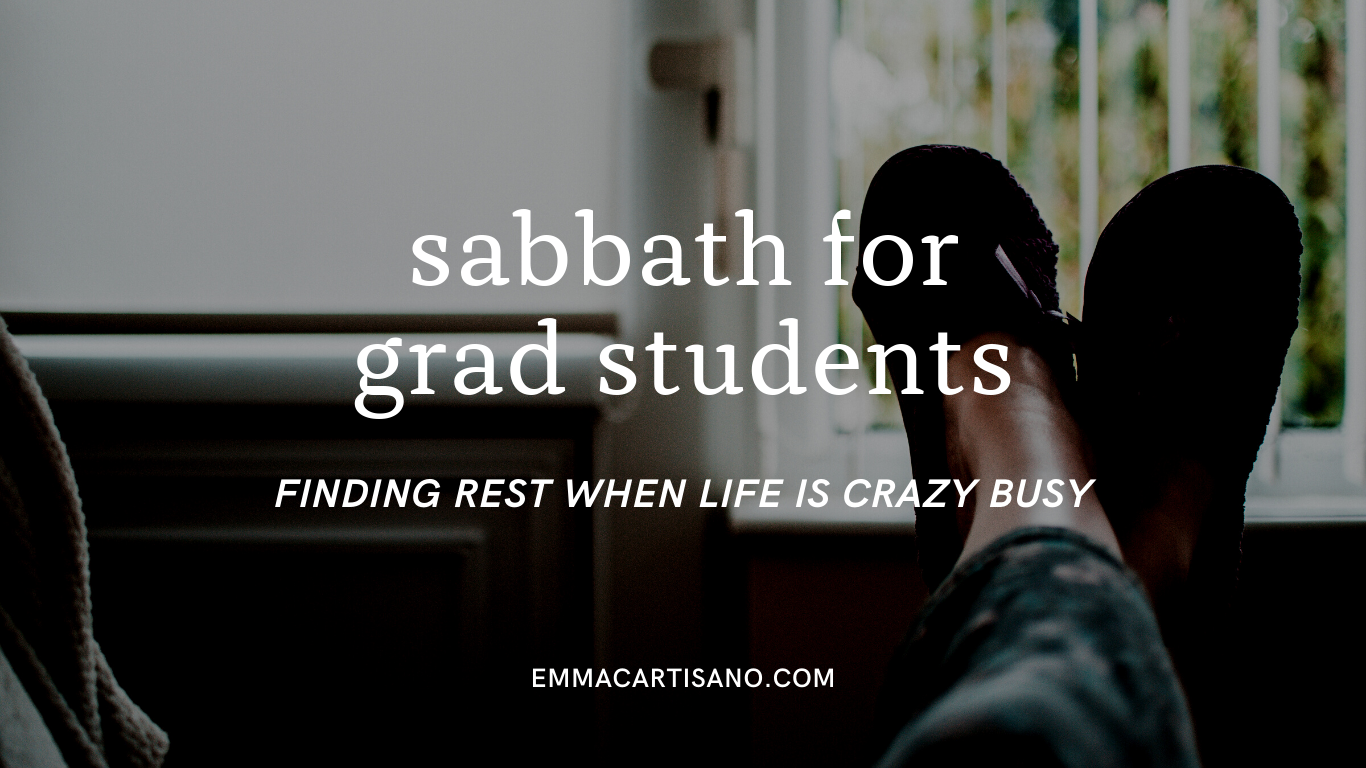
Writing

70 questions to ask during your grad school interview
It’s grad school interview season!
Maybe you’ve been accepted to schools already and are trying to decide which is the best fit, or maybe you’re interviewing as part of the admissions process. Either way, it’s a good idea to have some questions prepared to ask faculty and current students as you discern your next step.
The following questions are intended to be a starting point for you to draft your own list of questions to ask during grad school interviews.

Hey grad student, you’re not an imposter.
Reader, I hear you. I know this narrative a little too intimately.
I’m in way over my head right now. What was I thinking? Why am I doing this? Oh no, I’m gonna fail. I don’t want to fail. What if they find out that I’m not really qualified to be doing this? It’s all going to come crashing down and then I’ll have nothing. I should just quit while I still can.
Well let me set the record straight. YOU ARE NOT AN IMPOSTER.

Moving for grad school: 18 ways to get settled in your new town
So you’ve just been accepted graduate school. Congratulations! I’m thrilled for you! It’s so exciting to be pursuing your dreams.
But now your mind is racing with all the things you have to do to get ready. Find an apartment. Enroll in classes. Move. It’s a lot!
I’m here today to give you 15 tips that might ease your transition to a new place as you start grad school.

Mentoring 101: How to find a mentor in grad school
As you meander through grad school, do you ever wish there were someone who could help you figure out your path and give you insider info about how to succeed? Someone who’s just a few steps ahead of you who wants to help you learn from their mistakes? Someone who is wholly invested in your professional development and success?
Then you want a mentor!

Sabbath for grad students
Finding rest when life is crazy busy.
Sabbath. If you’re unfamiliar with the term, sabbath is a period of rest and recovery that follows a period of work. For grad students, sabbath is especially important because of the long hours we work during the week. In order to show up as our best selves each Monday, we need a small, restorative break in our weekly rhythm.

What college leadership teaches us about new year’s resolutions
Why resolutions fail and how to combat the cybernetic nature of our minds
As I study higher education administration, I’m constantly reminded about how colleges are not like businesses. You typically can’t just declare something from the top down and expect it to happen.
Why not?

Book Review: Cracks in the Ivory Tower - Jason Brennan & Phillip Magness
It is no secret that higher education is wrought with problems. Unmet expectations, high costs, and low faculty salaries: these are just a few of the many complaints rendered by students, parents, and employees. Jason Brennan and Phillip Magness addressed these issues and more in their 2019 book, Cracks in the Ivory Tower: The Moral Mess of Higher Education, published by Oxford University Press. In Cracks in the Ivory Tower, Brennan and Magness offer an argument, based on economic principles, that many of the issues facing higher education today can be explained by bad incentives which, in turn, makes those involved in academia engage in poor behavior. In each chapter, the authors explore a specific issue in higher education, including the bad incentives, relevant economic theories, and an occasional suggested remedy.

Book Review: Cheating Lessons - James M. Lang
Cheating is a prevalent concern throughout society. Headlines regularly appear with news of the next great scandal. In fact, you and I have probably cheated at least once in our lives (even if it was as small as changing the card drawn so as not to lose a game of Candy Land to a toddler). Less publicized but still highly prevalent is the epidemic of cheating in higher education. Depending on the study, up to 82 percent of all college students have cheated at least once in their educational experience (12). At some point, an occasional cheater might give up and become a serial cheater, which is not an intended outcome of higher education (223). To address the problem of cheating in college, James M. Lang wrote Cheating Lessons: Learning from Academic Dishonesty as an extension of his work for the online newspaper The Chronicle of Higher Education. Published by Harvard University Press in 2013, Cheating Lessons walks readers through some of the reasons why students might engage in academically dishonest behaviors, how increasing opportunities for learning decreases cheating, and practical ways in which instructors can begin to adapt their own courses to reduce cheating.

Book Review: Saints & Scamps - Steven M. Cahn
How nice would it be if a simple handbook on how to be an effective educator existed for recent doctoral graduates and new professors? Some graduate students receive adequate training throughout their doctoral program as a teaching assistant or adjunct professor; however, the vast majority of new professors are thrown into the academy with little training or development of the virtues necessary for effective professorship. Steven M. Cahn provides an invaluable resource that scratches the surface of the nuances of the professorial life with Saints and Scamps: Ethics in Academia. Cahn shares advice for healthy academia out of his wealth of experience as a graduate student, faculty member, and senior administrator in numerous colleges throughout the Northeastern US.

Book Review: Save the World on Your Own Time - Stanley Fish
Since the opening of Harvard College—the first university in the United States—higher education reformation has not ceased. Reformers respond to the question of the purpose of a university. In Save the World on Your Own Time, author Stanley Fish attempts to answer this question by articulating the role of university educators in teaching students practical skills necessary to enter the workforce after college. Fish published his book with Oxford University Press in 2008 after decades of working in higher education as both an instructor and administrator. Fish combines anecdotes, personal research, and rebuttals of other scholars to present a thorough argument for why instructors should focus only on teaching skills in the classroom and leave no space for political agendas or moral development.